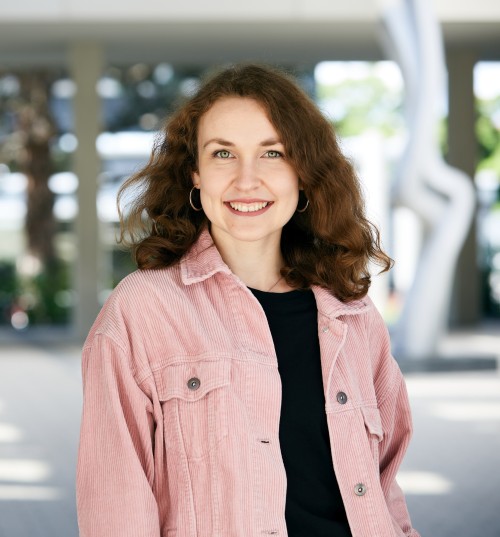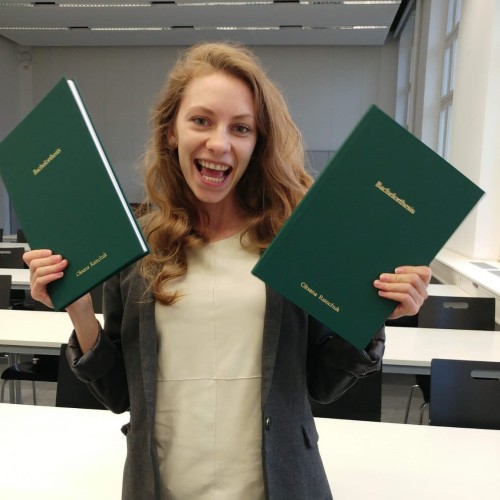Published: 29. March 2022, last edit: 27th October 2023
What do you have to have studied to be able to get a certain job later on – for example as a project manager, education officer, game designer or digitalisation consultant?
The Alumni Tip
If you're wondering exactly that, just take a look at what people who are already working in this field have studied. Career platforms can be helpful here. One of the best-known is the international platform LinkedIn, create a profile and off you go! In German-speaking countries, the platform XING is very well known. Simply look there for the institution or company where you would like to work. Of course, you can also search directly for your dream job and you will then be shown the people who are already working in this profession. This will give you an idea of which training path could lead to your goal. These can sometimes be very different courses of study!
You can also find numerous job advertisements on the platforms. The advertisements usually describe in detail what kind of person they are looking for and what hard and soft skills they should have. You can use these criteria to assess your own professional profile and analyse it more closely.
Polina,
Linguistic and Literary Computing M.A.
I like to look at LinkedIn to see what jobs people who studied my degree have. It inspires me!

Of course, the alumni tip also works the other way round, i.e. if you have found your dream degree programme but have no idea what you want to do with it professionally. Just enter your degree programme in the search and see what kind of jobs the people in the search result have taken up! It inspires me, and that's how I found some job ideas for myself. Another good tip is the portal Berufenet – read more in the info box:
What can I do professionally with my degree programme?
Where will I work after graduation, and will I even find my niche after graduation? Many students rack their brains over these questions. If this is still fairly clear and predictable with classic degree programmes like law or medicine, it looks quite different with many humanities programmes like German studies, cultural anthropology or sociology. And what about very modern intercultural studies, gender studies or discourse studies?
If you have no idea where you can work in the future with a degree in history or linguistics, for example, the portal Berufenet from the Federal Employment Agency can help. Hundreds of occupations are presented there, sorted by occupational field and by course of study. In addition, the portal offers a lot of information on activities, perspectives and professional and personal requirements. In addition, special industry-specific job exchanges are linked to each occupational field. This can give you a first overview of the current trends on the labour market.
Every story, every journey is unique
Although this may sound overwhelming and like a lot of work, the good news is – you are not alone on this journey! Many people have already walked this path and found their first job after graduation. TU Darmstadt has its own alumni portal where people share their stories, talk about their experiences and difficulties, and give tips that have helped them themselves. Every story, every career path is unique, and maybe you can take something from it for yourself.
But don't get too hung up on one path – many paths can lead to your goal. You can also get your dream job as a career changer. And just because someone with degree programme xy is doing your dream job doesn't mean you have to study exactly the same. It's important that the degree programme suits you and that you enjoy it. Here I recommend our blog post on the topic of “Finding the right degree programme” with my fellow student Richard, who is getting closer and closer to his dream job as a teacher via detours.
Let yourself be inspired, let yourself think and dare! I'm keeping my fingers crossed for you!
Polina from the #studentsofTUdarmstadt

Alumna of the month
Oksana Rainchuk came to Germany from Ukraine as an au pair in 2012 and later studied sociology and economics at TU Darmstadt. Today, our alumna works as an IT project manager at a start-up. You can read her encouraging story in the TU Alumni Network.

Polina
Hi, I’m Polina and I’m studying the master program “Linguistic and Literary Computing”. The study program is very interdisciplinary, which is challenging and fascinating at the same time. Furthermore, it offers excellent future perspectives. I like this mix of the linguistics and computer science, and also the possibility to study in two languages – German and English.


